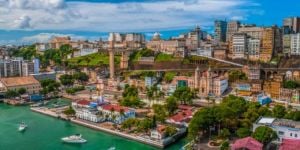I just came across this article from Repórter Brazil that the certified coffee plantations in Minas Gerais are using slave / child labor.
https://reporterbrasil.org.br/2023/11/s … as-gerais/
Starbucks, Nestlé, and McDonalds (all huge multinationals) are named as potential causes of those labor laws infringements.
Question: what can be done to prevent those unlawful acts from happening?
-@Pablo888
What Flanagan has said about Nestle is accurate. They act as a corporate criminal enterprises. Nestle, Coca Cola get water rights in communities , therefore making drinkable water scarce, so they can profit handsomely from selling bottled water or soda.
This Coffee growing chicanery comes to no surprise to me.
And Brazilian Food conglomerates are no way any better on the moral scale. Ambev, JB Foods, they are all crooks, who get breaks from corrupt governments. There are US Congressman who have tried to stop them, with no success.
Ralph Nader has gone through this, in books and speaking engagements. There are subjects you can pull on his "Ralph Nader Radio Hour" on Youtube, with scant click rates.
Not consuming their brands is one way to go. But it will barely make a dent on their bottom line. The only other way is to start Citizen Activism.
A long time ago ,some dude from Connecticut publish a DunkinDonutsSuck dot com. Well, the folks from Dunkin Brands paid him a visit, and "bought" the domain. So this dude was bought and paid.
The dilema with Coca Cola in Mexico is even direr. Whole towns can't get drinking water, and folks are addicted to Coke, which tends to lead to collective and chronic cases of diabetes. To think Coca Cola came from a pharmacist who served soda pop from his counter, to these colections of malfesance, it's a long way. Bottling & Beverage business is a dirty business.
In Rhode island there used to be a family company that delivered milk bottles and other stuff. Christiansen. Brother and Sister operation, a few drivers, and a couple mugs at their plant. There were them and another survivor, Munroe Dairy. The brother sister @ Christiansen let you take the bottles with no deposit, on a honor system, something completely unheard then.
One way to avoid buying this junk is consuming fresh to cook ingredients, on Feiras Livres, or Farmer's Markets. Some, if not most, will buy their supplies from wholesalers, yet, there are a few who grow their own stuff. Japanese kin folk used to be like that.












